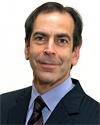

Guns and Moses
![]()
Original article from New Jersey Jewish News.
Guns and Moses
by Andrew Silow-Carroll
NJJN Editor-in-Chief
June 20, 2012
 At a synagogue talk a few weeks ago, a member of the audience asked me why Jews seem to be disproportionately in favor of gun control. I gave a quick and I thought not-bad answer: Jews have no real cultural history of hunting and an ambivalent relationship with military service.
At a synagogue talk a few weeks ago, a member of the audience asked me why Jews seem to be disproportionately in favor of gun control. I gave a quick and I thought not-bad answer: Jews have no real cultural history of hunting and an ambivalent relationship with military service.
Kosher-keeping Jews can’t eat an animal that isn’t slaughtered according to kashrut. As for hunting for sport, Rabbi Ezekiel Landau of Prague (18th century) wrote that killing an animal in order to satisfy “the enjoyable use of [a person’s] time” is “sheer cruelty.” As Rabbi Joseph Telushkin explains, Landau’s response has long been considered the “normative Jewish position on hunting.”
As for military service, Jews have a long and proud history as soldiers. Don’t get a Jewish war vet or an Israeli soldier started on the idea that Jews don’t fight.
But the Jewish relationship with the military has always been rocky. Immigrants fled Russia to escape forced conscription for terms of two decades and more. The military could also be a hotbed of anti-Semitism, as Dreyfus learned so memorably. Through much of the last century, Jews in the U.S. military academies spoke of their struggles for acceptance.
I find these sorts of “cultural DNA” arguments very satisfying. Of course, I don’t “get” guns or why anyone who isn’t a hunter or a jeweler would want to own one. For folks on the other side, this isn’t culture – it’s intransigence. Last month I was sent a copy of “Why Jews Hate Guns,” written by Rabbi Dovid Bendory of Livingston and Alan Korwin on behalf of Jews for the Preservation of Firearms Ownership. The paper is dripping with disdain for the Jews, who, “with such a stunning history of oppression and murder by humanity’s villains,” nevertheless “hate guns and fear gun ownership.”
The authors list the mindsets they believe contribute to Jewish “hoplophobia” (which, I learned, is an irrational fear of guns). These include a “desire for utopian moral purity,” an embrace of victimhood, and that old standby: self-hatred.
The authors also find justification for gun ownership in the Torah. Unable to face reality, misguided Jews embrace Isaiah: “They shall beat their spears into pruning hooks.” The authors much prefer Talmud, Berachot 58b: “If a man comes to kill you, rise early and kill him first.”
In fact, there is a gun culture among segments of Modern Orthodox Jews. The One Israel Fund and the Teaneck-based Golani Rifle and Pistol Club hold an annual “Guns and Beef Night” (which I like to call “Glock and Glatt”). Bendory gives shooting lessons to fellow Orthodox Jews.
Bendory and Korwin also hold with a belief, prominent in conservative circles, that many members of the non-Orthodox Jewish majority are “Jews In Name Only.” These “JINOs,” they write, “have replaced their previous religion with a popular new one: so-called ‘social justice.’” It’s the same point made by Norman Podhoretz in his 2009 book Why Are Jews Liberals? The “Orthodox oppose the politically correct liberal positions taken by most other American Jews precisely because these positions conflict with Jewish law,” wrote Podhoretz.
These debates over guns and politics raise a more fundamental question: Who is a Jew? One side dismisses polls showing Jewish support for Democrats by saying many of those Jews have, for all intents and purposes, stopped being Jews, at least as measured by the positive Jewish choices they make in their lives. The other side looks at the conservative minority and wonders how they can engage in behaviors so “un-Jewish”: voting Republican, toting guns, allying with Evangelical Christians. I am always surprised by the degree to which highly assimilated Jews still hold onto the idea of “goyische naches” – that is, the things only gentiles do.
The culture that gave rise to Jewish liberalism is not Judaism “in name only,” unless you are willing to write off the last 150 years or so of Jewish culture, politics, and social activism as a historical blip. Yes, many Jews defined themselves over those decades in terms of the causes they took on, from the labor movement to civil rights to secular Zionism. But they did so with a deep indebtedness to their Jewish identities. Even in a period of decline – and surveys show non-Orthodox movements in retreat – the conflation of Judaism and liberalism persists, certainly enough to frustrate Podhoretz and the Jewish pro-gun lobby.
Thus, some conservatives did a victory lap after last week’s release of the New York Jewish population survey, which showed huge gains by the fervently Orthodox community and declines among the non-Orthodox movements. “There’s little doubt this means the Jewish community of the future will be far less liberal,” wrote Commentary’s Jonathan Tobin.
I agree that we are going to lose a lot more non-Orthodox Jews and secular Jewish culture before the assimilationist trend bottoms out. But I also think the cultural patterns that gave rise to Jewish liberalism are a powerful force and will continue to be transmitted despite the generational drift. Whether that force survives or fades depends on the will and ability of non-Orthodox Jews to assert their Jewishness and make the choices that assure there will be young Jews like them. To those who care deeply about Judaism in all its varieties, I say: Stick to your guns!
Andrew Silow-Carroll is Editor-in-Chief of the New Jersey Jewish News. Between columns you can read his writing at the JustASC blog.
![]()



































